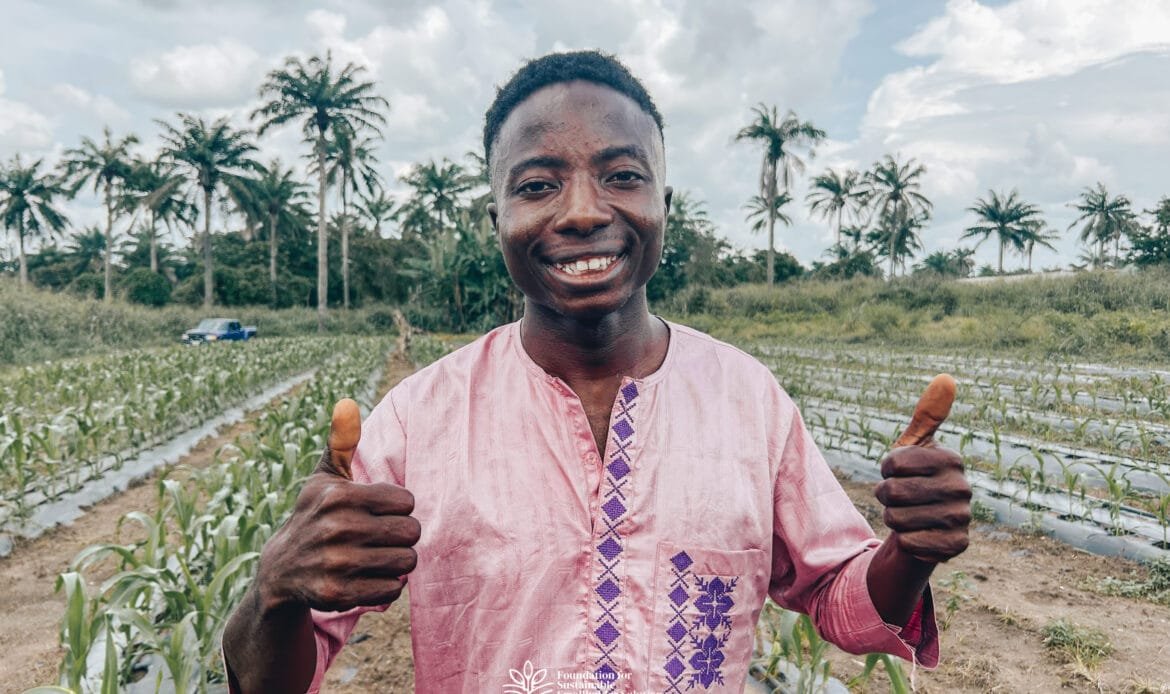The first time Ajibola Wasiu Opeyemi held a hoe he was a second-year student at the Federal University of Agriculture, Abeokuta. It was 2013 and he had just signed up for a side programme called Work, Earn and Learn. The programme was not part of his formal curriculum. It was a practical, hands-on offer for students who wanted to learn technical skills in organic agriculture. For Ajibola it would become the hinge on which the rest of his life swung.
“That was the first time in my life that I carried a hoe,” he says. “When my cucumber grew and I sold the most, I decided I would not look for a job.” The memory of that first success still carries the quiet astonishment of someone who discovered, in soil and seed, a way to shape his own future.
Ajibola’s breakthrough was modest and stubbornly ordinary: a patch of cucumbers, a tray of seedlings, and a few sales at market. But the practical lessons compounded quickly. He learned how to raise healthy seedlings, how to spot pests, and how to select the right variety for each farming season. His appetite for problem-solving widened. He stopped seeing agriculture as a fallback and began to see it as an opportunity to employ others, to build a livelihood and to feed his nation.
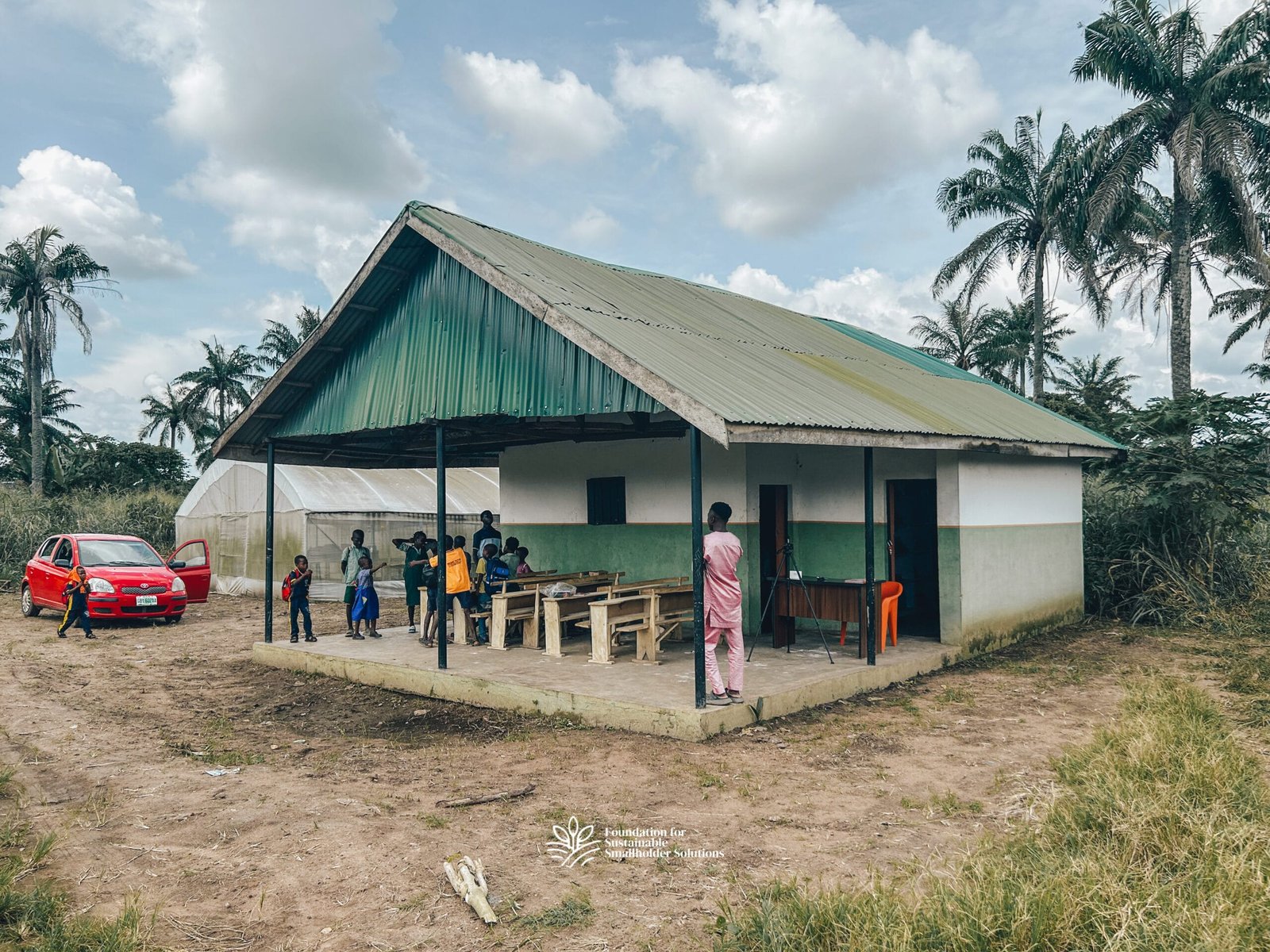
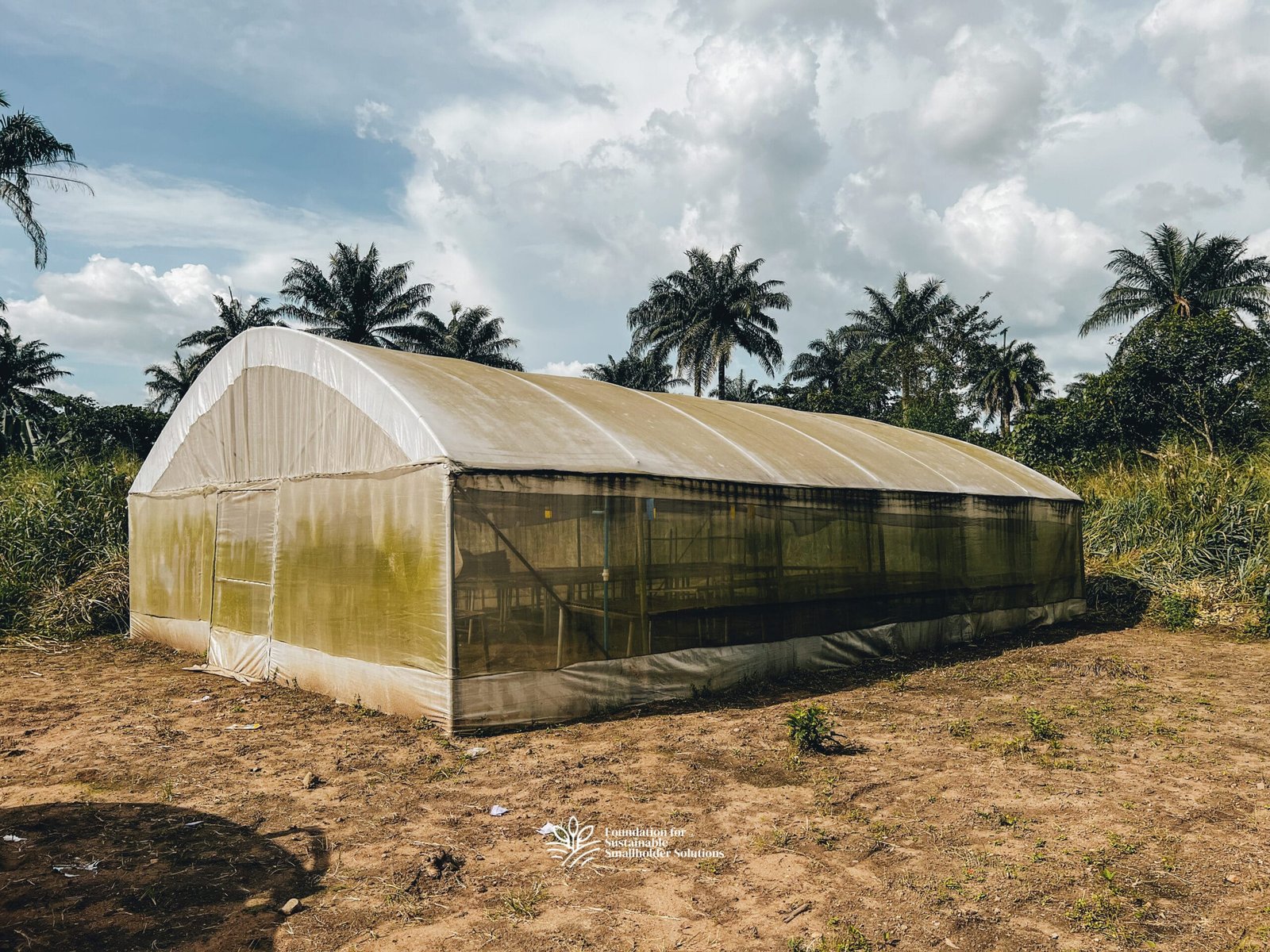
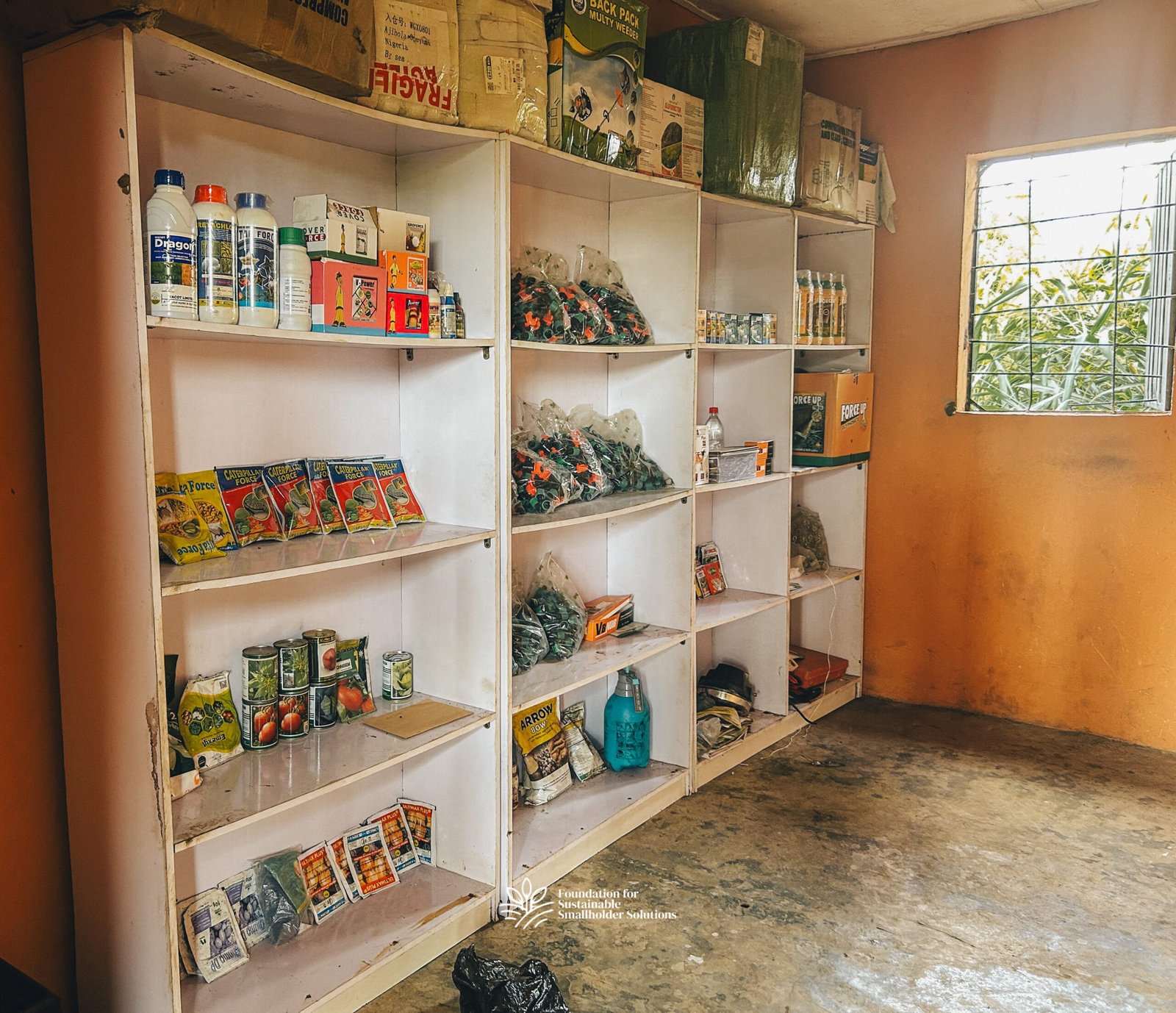
The path from student plot to community hub was not a straight line, but it moved with a clarity few can plan. In 2021, after years of experimenting and building his small farm, Ajibola agreed to plant a trial of a sweetcorn variety called ‘Sugar 75’. The trial was a success. Farmers and agronomists visited, and a field day that drew almost 200 people ensued. They wanted to see what the crop could do. One of those visitors, a young man named Yemi, recommended Ajibola when The Foundation was scouting for Farmers’ Hub managers across the South West.
By 2022 Ajibola was one of three candidates selected to run a Farmers’ Hub in Lagelu local government area of Oyo State. The Foundation invested roughly ₦10 million to construct greenhouses, an office and a store for agro-inputs. The hub would be more than infrastructure. It would be a place of trust, training and demonstration. Seedlings were raised under controlled conditions. Demonstration plots displayed different seed varieties. A network manager verified every product to guard against counterfeit inputs. Farmers could buy quality seeds, fertiliser and pesticides with the reassurance that what they were buying would perform.
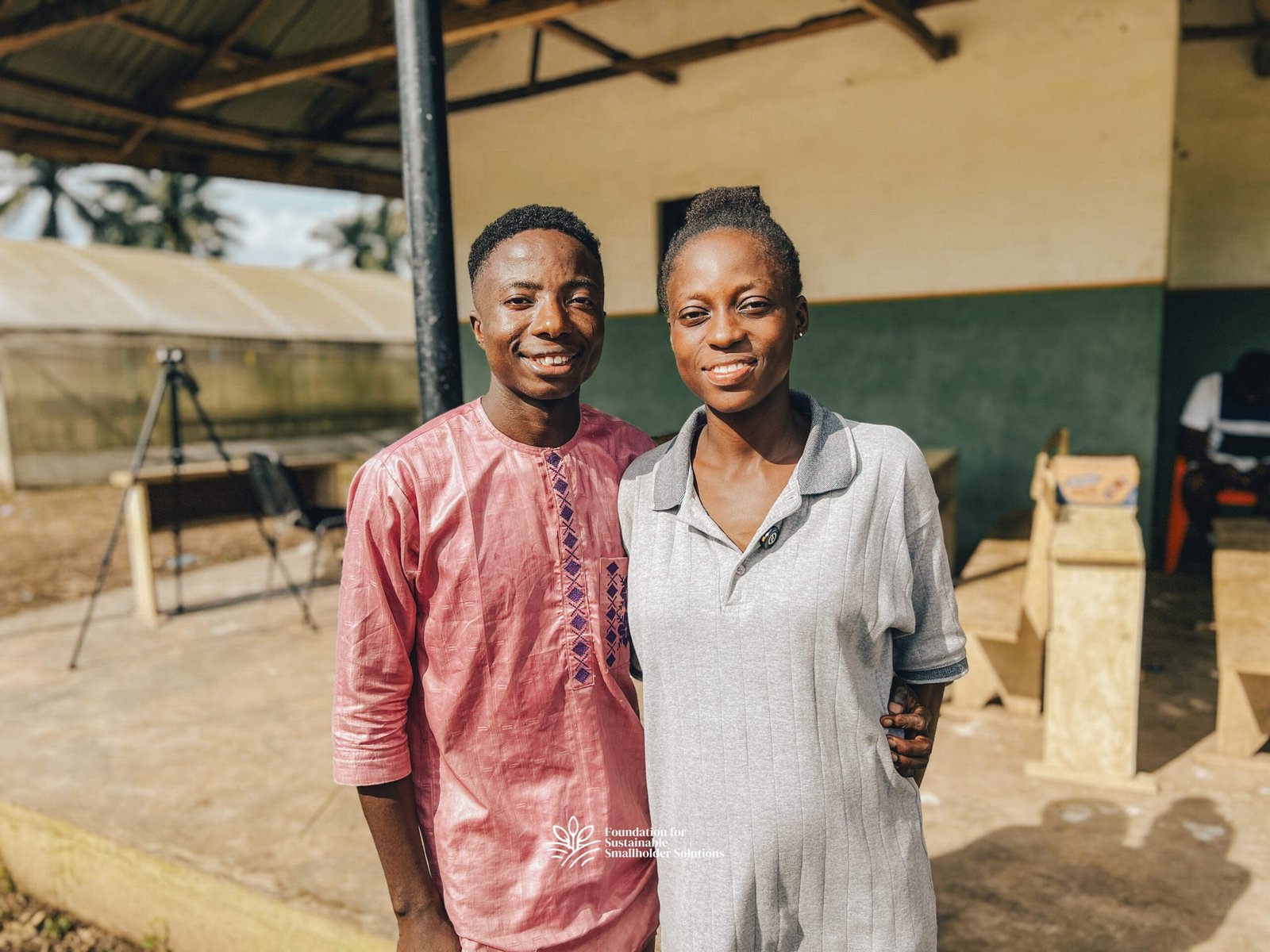
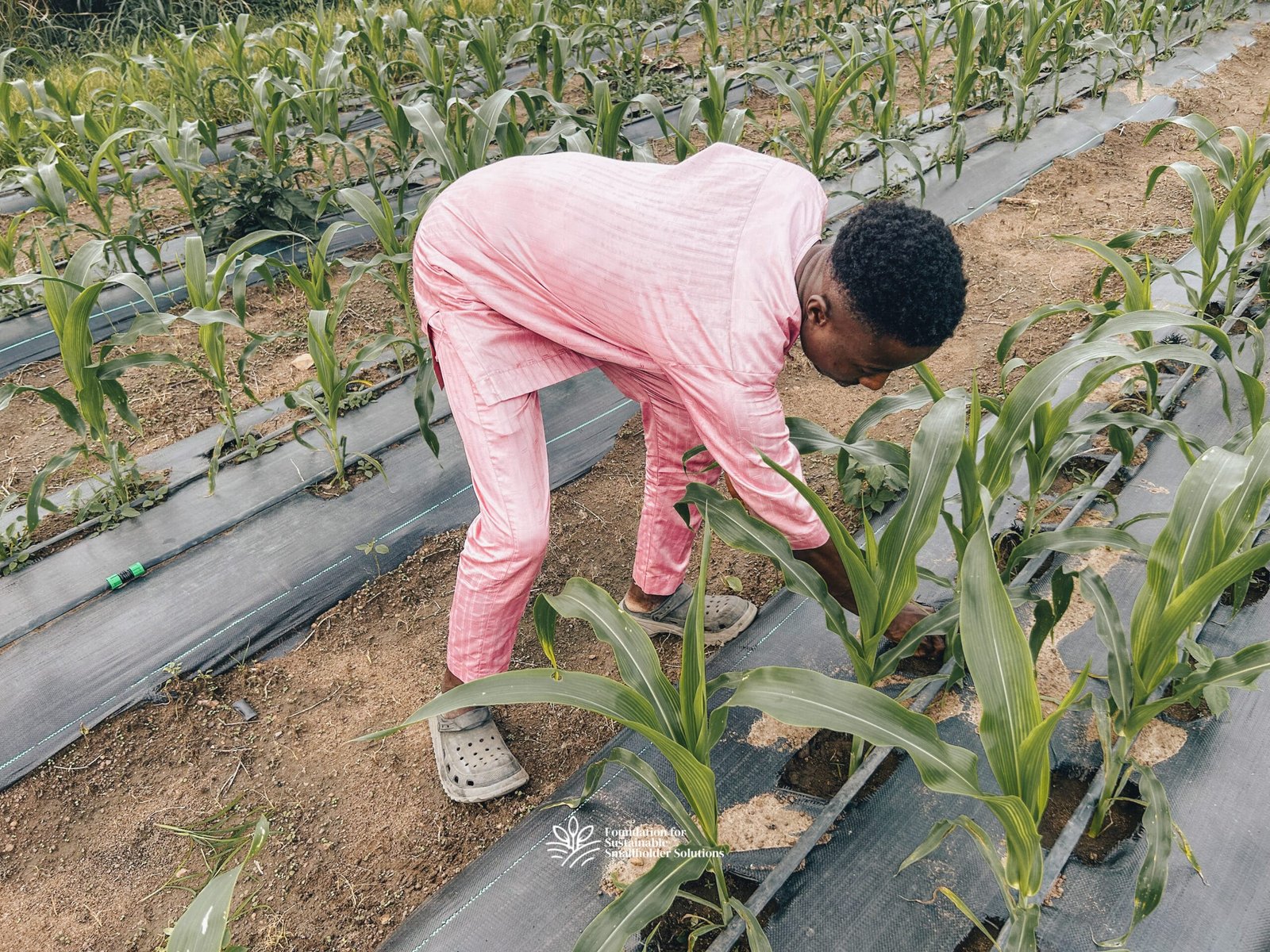
“No one here sells fake products,” Ajibola says. “We are known for quality. That is why people come to us.”
The hub’s combination of accessible training and reliable inputs has been transformative. Today it services at least 1,000 farmers annually and generates about ₦15 million yearly from sales of seedlings and inputs. For many in Aboke village and the surrounding area, the hub is the place to go when a crop is failing or when a question needs a quick practical answer.
A feature of Ajibola’s Farmers’ Hub, which also serves as his farm, that rivals its market impact is the quiet logic of its sustainability. He practices a form of regenerative agriculture adapted to local needs. Corn stover feeds chickens and other livestock. The animals’ waste is composted and returned to the soil. Maggots raised on organic waste become fish feed for his catfish ponds. Nothing is wasted; every output becomes an input, reducing costs and building fertility.
That practical frugality is matched by a wider generosity. Ajibola and his wife started Nutri Future Academy, a small community school for children aged two to twelve whose families cannot afford a good education. The academy provides free books, pens and lessons. It is unpaid work, and it is deeply felt. “It saddened our hearts that these little ones might waste away,” Ajibola explains. “So we took it upon ourselves.”
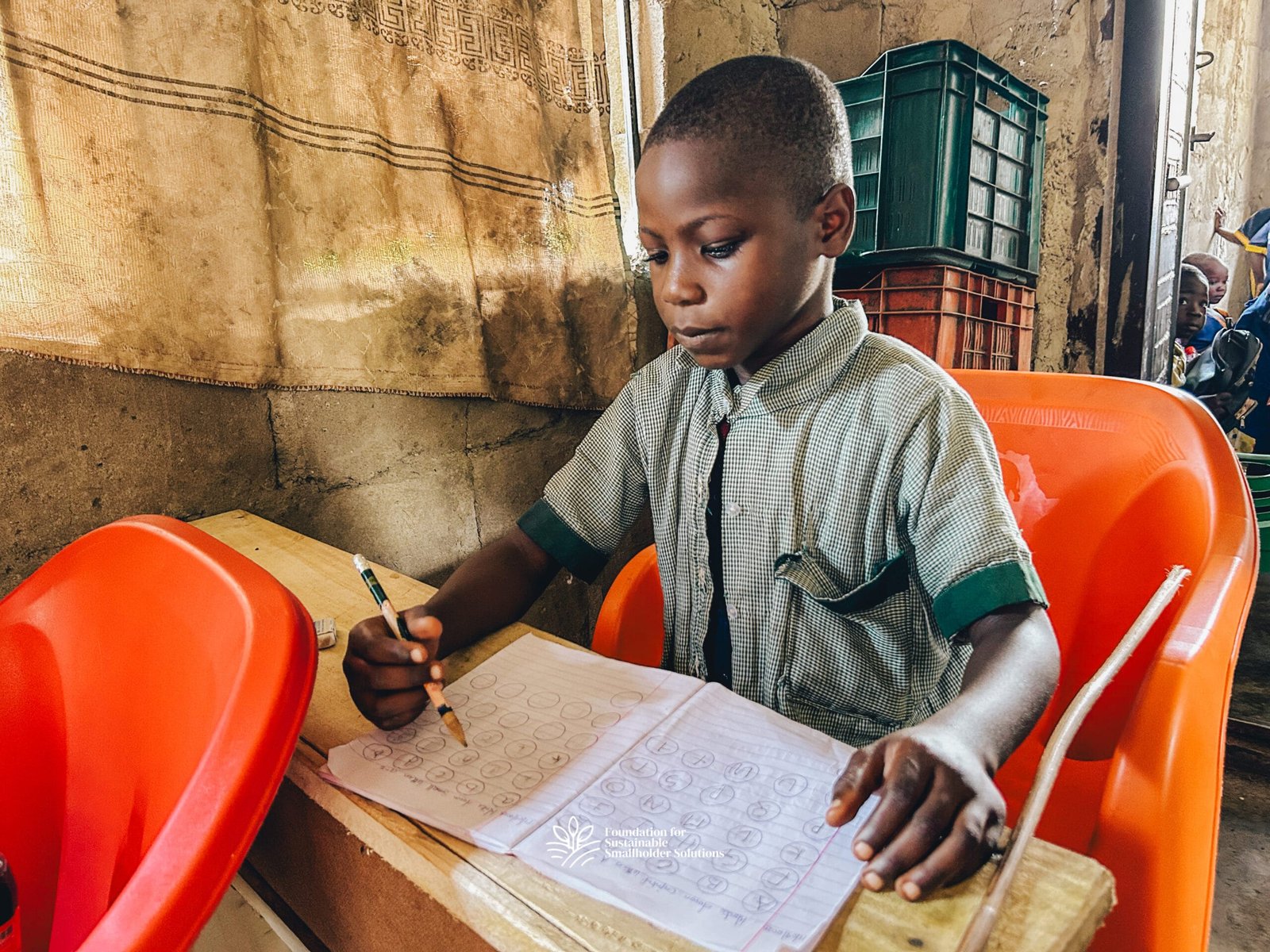
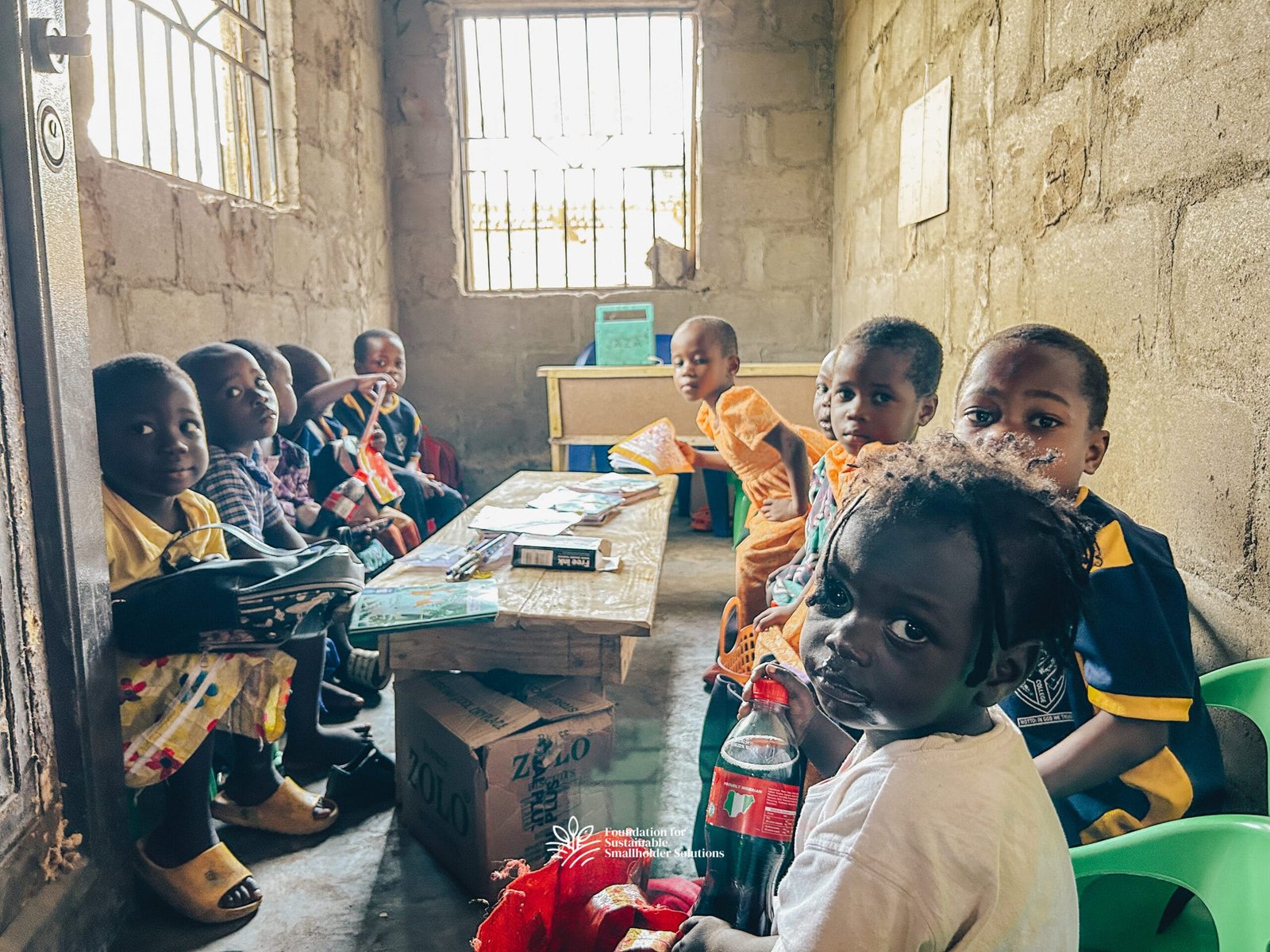
The image of Ajibola at dawn, hoe in hand, and later in the day at a packed training session, captures how personal commitment becomes public good. He lives on the farm, and farmers come at all hours because they know he is available. They call him a saviour because the hub solves immediate problems and, over time, makes farming a more reliable way to earn a living.
Ajibola’s story is not one of individual success. It is a study in how small, well-targeted opportunities and intervention can change communities. A single demonstration plot and a field day turned curiosity into confidence. A modest foundation investment multiplied into a functional hub that trains, supplies and markets. And the human ledger; children in school, families with steadier incomes, healthier soil, adds up to something worthwhile.
Looking ahead, Ajibola is careful but optimistic. He speaks of representing the foundation well, of expanding training, and of doing more for his community as his capacity grows. For a man who once could not imagine carrying a hoe, the scale of what he helps sustain today is enormous. The farm that began as an experiment is now a campus for learning, a supply chain for honest inputs and a cradle for young futures.
If there is a single lesson in Ajibola’s journey it is this: practical skills taught to the curious can sprout into leadership that feeds people in more ways than one. From a student plot to a Farmers’ Hub, the harvest is both crops and hope.


